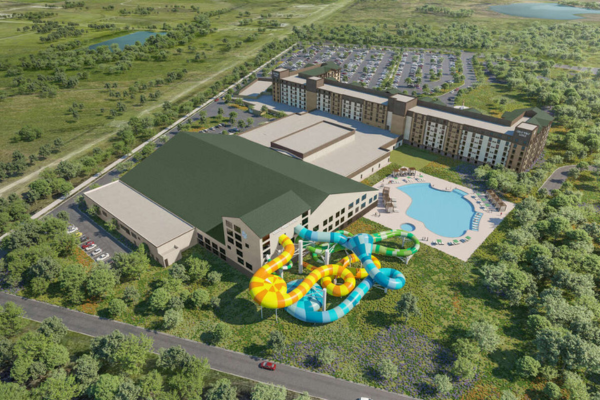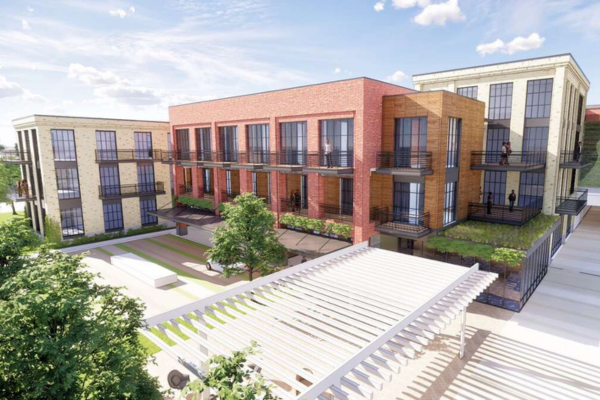New Developments and Innovation Driving Growth in Bay Area Houston
Published Dec 07, 2023 by Taylor Tatum
Often referred to as the “Boating Capital of Texas”, Bay Area Houston is a top destination for businesses, families, and tourists, thanks in part to its close proximity to Galveston and Houston.
Encompassing a widely diverse region, the Bay Area stretches from Pasadena to Galveston, consisting of communities such as La Porte, Seabrook, Clear Lake Shores, Webster, Friendswood, League City, Dickinson, Texas City, and La Marque.
Boasting the nation’s third largest concentration of recreational boating centers and a variety of amateur sports, outdoor activities, beaches and parks, the Bay Area’s waterfront contributes to its high quality of life and has propelled growth in its recreation and tourism industry, while population growth in the area and the arrival of new facilities has buoyed the region’s health care sector.
According to the U.S. Census Bureau’s 2021 American Community Survey, the Bay Area has experienced consistent growth in population, income, and employment since 2016 and is home to over 560,000 residents, based on 2019 data from the Bay Area Houston Economic Partnership.
Business Climate
Home to the NASA Johnson Space Center, Ellington Airport, and one of the world’s only truly urban commercial spaceports, Bay Area Houston is known as the nexus for Houston’s aerospace and aviation industries. Additionally, the Bay Area is also an important hub for transportation and logistics, health care and life sciences, and tourism. Other industries of note include specialty chemical, maritime, and recreation.
Its robust industrial presence is supported by the construction of several industrial parks and complexes, as well as new warehouse and distribution centers and facilities.
Packwell, a plastics bagging and logistics company based in La Porte, recently broke ground on a 725,000-square-foot resin packaging facility at Port Houston’s Bayport Industrial Complex while Kao Corporation recently broke ground on a $250 million tertiary amine production plant in Pasadena.
Business Developments
Houston Spaceport
The Houston Spaceport serves as a center for collaboration and innovation in the aerospace community. Earlier this year, the company announced that it will launch Phase II of its expansion project with plans to begin work within the next 12 months. Phase II will stretch over 300 acres, offering more parcels for aerospace companies, a hotel, restaurants, and retail space.
-
Axiom Space broke ground this spring on a 23-acre campus that will house its new headquarters and space station production facility at the Spaceport. The campus will contain spaces for astronaut training, mission control facilities, and engineering development and testing labs. A ribbon-cutting ceremony was held in December 2023 to officially open the first phase of the development. Axiom has also leased space in Webster for engineering and production operations.
-
Collins Aerospace recently opened a 120,000-square-foot facility that will allow for expanded operations, manufacturing, and testing. Its new facility will support the development and testing of several key space systems, including the next-generation spacesuit.
-
Intuitive Machines broke ground on 12.5 acres at the Houston Spaceport with a 125,000-square-foot facility under construction that will house office, laboratory, production, assembly, and test space.
Mixed Use
A number of communities in the Bay Area Houston region have mixed use developments planned, including Seabrook, League City, Texas City, Friendswood, and more.
-
Seabrook Plaza on NASA Parkway is a 15-acre, $170 million mixed-use waterfront development that will feature two Margaritaville-branded hotels. The development will also include a 10,000-square-foot event center, a seven-story apartment complex, and 20,000 square feet of waterfront dining.
-
Riverview at Clear Creek in League City is another waterfront mixed-use development spanning 59 acres that will include a hotel, multifamily project, townhomes, an amphitheater, boardwalk and trails, and retail space and restaurants. The project also has marina infrastructure work currently underway.
-
Plaza 96 is a 75,000-square-foot mixed use development in League City that will have space for retail, restaurants, medical offices, and office warehouses. It is expected to break ground this year.
-
One Sixty One in downtown Friendswood is a 5.5-acre development anchored by a boutique hotel and banquet room. The project will also include residences and executive offices, restaurants, retail, collaborative spaces, and a green rooftop experience. New construction began this spring.
Rendering of One Sixty One boutique hotel
Photo courtesy of Banfield Properties, Inc.
Recreation & Tourism
-
Peninsula Beach Resort is a 110-acre resort development on Bolivar Peninsula at Crystal Beach that will include over 200 beach houses and cottages, in addition to five mid-rise condominium buildings and 50 RV sites. The development will also include a clubhouse, beach bar, and an FAA-approved airport, making it the only fly-in beach resort in the U.S.
-
Great Wolf Lodge broke ground on a new hotel, indoor waterpark, and conference center in Webster in 2022, with the resort planned to open in 2024. Representing a $200 million investment, the 27-acre site will also boast a 58,000-square-foot family entertainment center called Great Wolf Adventure Park.
Education
Bay Area Houston is home to several higher education institutions, including the University of Houston-Clear Lake, which touts one of the most complete biotechnology graduate programs in the state, as well as San Jacinto College, College of the Mainland, Lee College, and Houston Community College.
-
College of the Mainland, a community college in Texas City with locations in League City and La Marque, opened its Industrial Careers Building in fall 2022 and has several new buildings planned, including a 134,000-square-foot library and classroom building, a 20,000-square-foot corporate and continuing education center, a 50,000-square-foot public services center, and a three-story classroom building.
-
Lee College recently opened its new 11,000-square-foot Corporate Training Center that will offer hands-on technical training, including onboarding and upskilling, and leadership development for employees of all levels. The center will give students and employees the opportunity to work with equipment that is being used in the field, as well as a number of training labs.
-
San Jacinto College is planning to launch a new degree program in spring 2024 that seeks to fill the workforce gap in early childhood education. The new Bachelor of Applied Science in education will target paraprofessionals and individuals who work for other early-learning programs.
Learn more about Houston’s surrounding regions.
 The Houston Report
The Houston Report




















